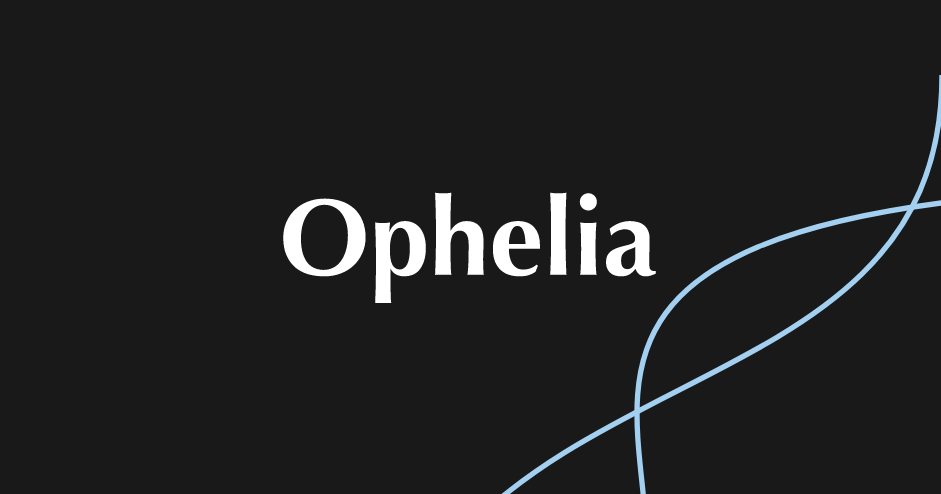
What You Should Know:
– Ophelia announced its $50 million Series B funding round, led by Tiger Global to expand access to medication-assisted treatment (the CDC’s recommended first-line treatment) to more people with opioid use disorder.
– Funding will enable Ophelia to become a national provider, integrate with additional payors and partners, and grow its clinician support platform.
Ophelia, an NYC-based digital provider of medication-assisted treatment (MAT) for opioid use disorder (OUD), today announced that it has raised a $50M in Series B funding led by Tiger Global including participation from Menlo Ventures, General Catalyst, Refactor Capital, 640 Oxford Ventures, Interplay Ventures, PillPack founder Elliot Cohen, and Good Friends, the fund launched by the founders of Warby Parker, Harry’s, and Allbirds.
Online Treatment for Opioid Dependence
Ophelia is taking a totally different approach from other startups and traditional rehab providers in two ways:
1. They are focused on expanding the number of providers who can prescribe the treatment (it requires a special waiver from the federal government) and training more clinicians to provide support needed for the treatment to be successful.
2. They are not relying on referrals from the ER or PCPs to reach patients. When referrals like that happen, it’s typically because a dangerous complication has already occurred. Ophelia’s goal is to engage the about 80 percent of people with OUD who are not engaging with the healthcare system.
Ophelia provides MAT, the gold standard treatment for OUD, proven to reduce overdoses by 75 percent. At its core is buprenorphine (Suboxone), a medication used to treat withdrawal and cravings while also mitigating overdose risk. A major barrier to expanding access to MAT in the U.S. has been a longstanding shortage of prescribers. In order to prescribe buprenorphine, clinicians need a separate license from the federal government called an x-waiver, which only 5 percent have. They are also restricted in the number of patients they can treat — often only 30 patients at a time. At such a low patient volume, they are not eligible for hire by most treatment programs, so many work in other settings where they do not treat any OUD patients.
Ophelia Care Model
To solve this problem, Ophelia has created a digitally native clinical model, called the Ophelia Care Model, which adapts the widely successful Massachusetts Collaborative Care Model to telemedicine. By combining team-based care with a robust clinician training program and collaborative clinical software, the Ophelia Care Model creates treatment opportunities for the 50,000+ licensed MAT clinicians who previously had no way of treating patients. Ophelia is led by industry-renowned addiction psychiatrists and researchers, who have collaborated with the UN and U.S. government agencies to develop OUD treatment protocols for decades.
Ophelia’s clinical protocols are comprehensive and informed by the latest standards of care, including synchronous video-based telehealth visits, FDA-approved medications, urine drug screens, on-demand messaging, optional groups, care coordination services, and treatment for commonly co-occurring psychiatric disorders such as depression and anxiety.
Ophelia treated its first patient in early 2020 and has since seen rapid adoption by both patients and clinicians. Today, it is licensed to provide care in 27 states and has national and regional insurance contracts covering 75 million lives, including bundled rates across Medicaid, Medicare, and commercial populations. Its outcomes are impressive, including 70% six-month retention, 60% 12-month retention, a patient NPS of 91, and a clinician NPS of 90. In addiction treatment, retention is considered the primary clinical outcome metric, with industry averages typically ranging around 30% at six months.
“Anyone who wants to stop using opioids needs this medication, but most find it easier to get from drug dealers than doctors, even if it means spending a thousand dollars per month,” said Zack Gray, co-founder and CEO of Ophelia, who started the company after losing someone he loved to opioids. “If you can make treatment accessible and reach patients directly, they’ll happily choose professional care instead.”
Expanding its Treatment Program
The funding will enable Ophelia to expand its treatment program to more patients and clinicians across the United States, integrate with additional payors and partners, and develop its clinician recruitment, training, and support platform. Ophelia’s Series B investment follows a $15M Series A round just seven months prior, bringing its total funding to $68M to date.
